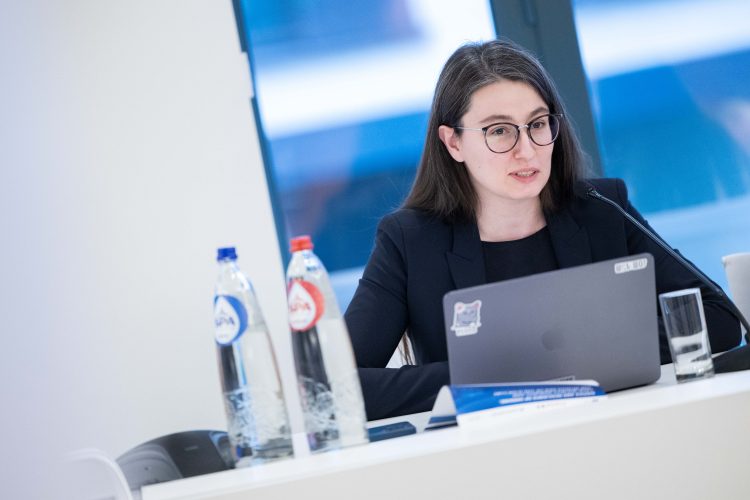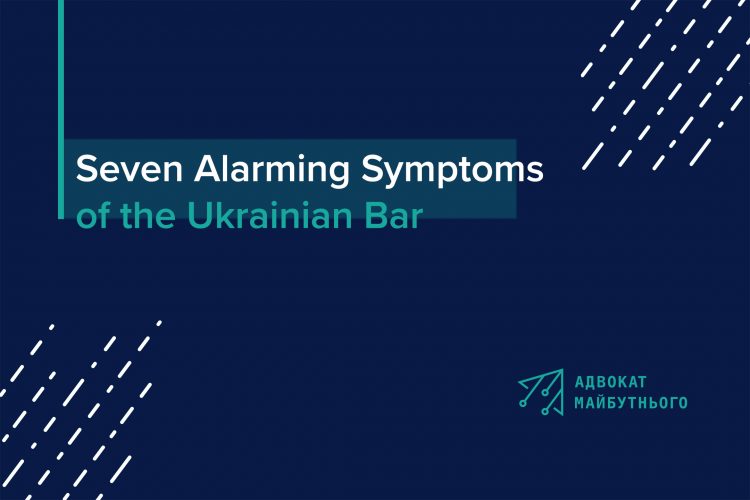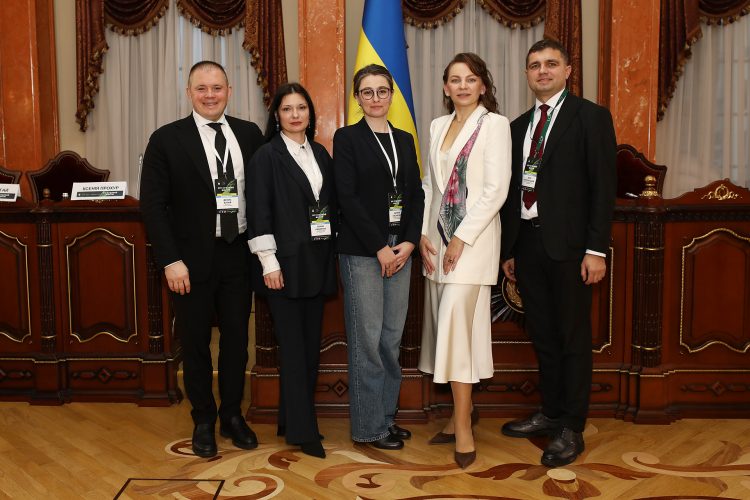
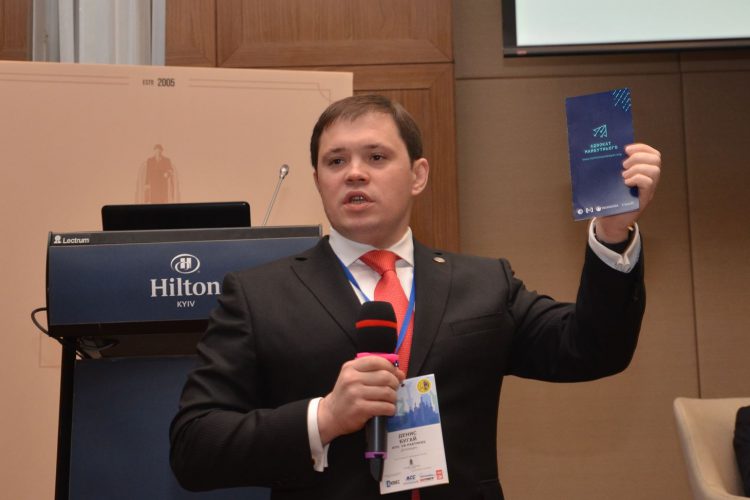
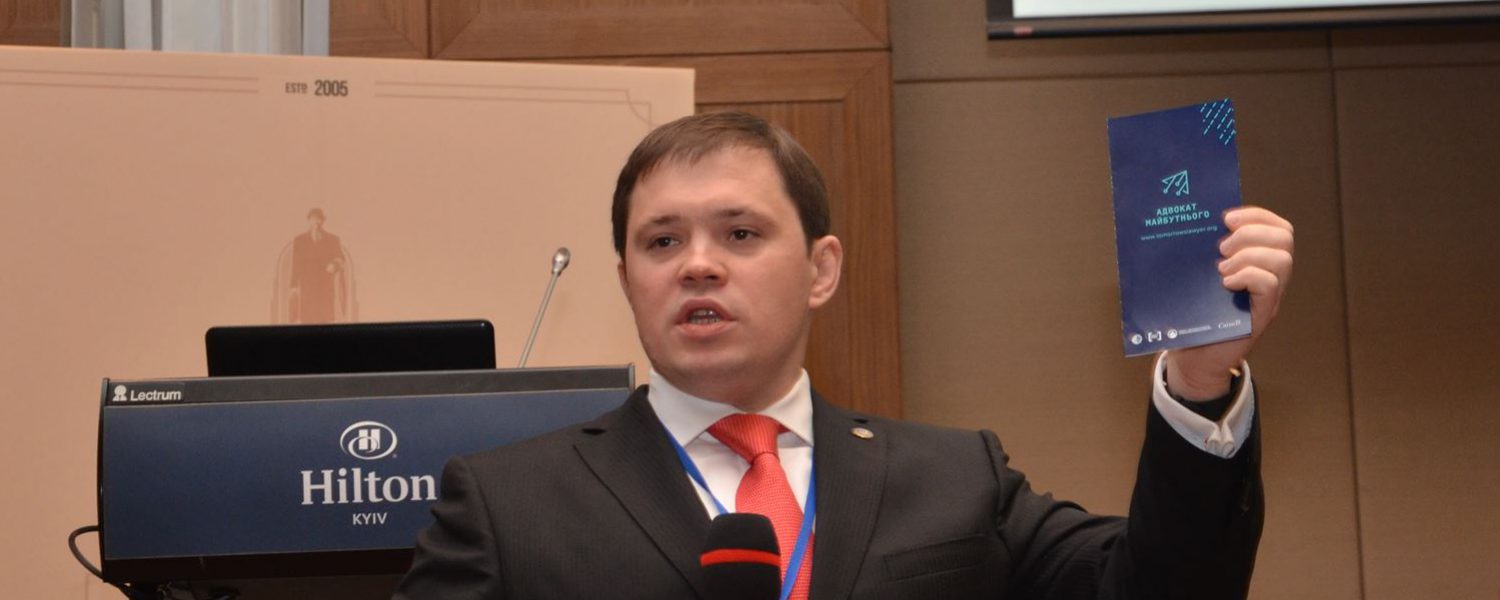
The UBA President Denys Bugay Presented the First Results of the “Tomorrow’s Lawyer” Program
KYIV – 31 March 2017. The President of the Ukrainian Bar Association (UBA) Denys Bugay presented the first results of the “Tomorrow’s Lawyer” Program at the XIII Annual Legal Forum “Development of Legal Services in Ukraine – 2017” organized by the UBA.
“This Program is the project that will qualitatively change the legal community of Ukraine in the near future”, – said the UBA President in his speech. Speaking about the tasks implemented within the program, which has started in November 2016, he presented some impressive statistics: “on a competitive basis among 707 candidates 111 lawyers from 24 regions of Ukraine were selected to participate in the Program, formed by four training groups of 27-28 participants each. This diversity of participants is important, because one of the objectives of the Program is to create horizontal communication between professionals from all over the country”, – said Denys Bugay.
The ones to adapt the Canadian training materials to the Ukrainian reality was a team of six experienced professionals, namely: Sergiy Goncharenko, Olga Zhukovska, Andriy Kostin, Dmitry Kukhnyuk, Volodymyr Suschenko and Oleksandra Yanovska.
At the time of the Forum, three groups have already accomplished their training in Kyiv. The trainer of this module was Iryna Hluschenkova, certified business coach, facilitator, the official training partner of the EBA. In 2017, the participants will go through three three-day sessions to be held in Lviv, Kharkiv and Odessa.
***
“Tomorrow’s Lawyer” Program is being implemented by the Ukrainian Bar Association (UBA) and the Bar Association of Legal Aid Providers (BALAP) supported by the “Quality and Accessible Legal Aid in Ukraine” (QALA) Project funded by the Government of Canada, implemented by the Canadian Bureau for International Education (CBIE) in cooperation with the Coordination Centre for Legal Aid Provision.
“Tomorrow’s Lawyer” Program — the first All-Ukrainian professional development program for lawyers, intended to form a strong and active community of lawyers who are expected to become the agents of change with high ethical standards of work; introduce reforms, both at the regional and national levels; improve standards of legal aid providing and facilitate the effective implementation of self-government functions.
The Program consists of four training modules, covering the most important aspects of legal practice, namely attorney-client relations, building collateral relations in the justice system, communication within the legal society, public relations and media.
